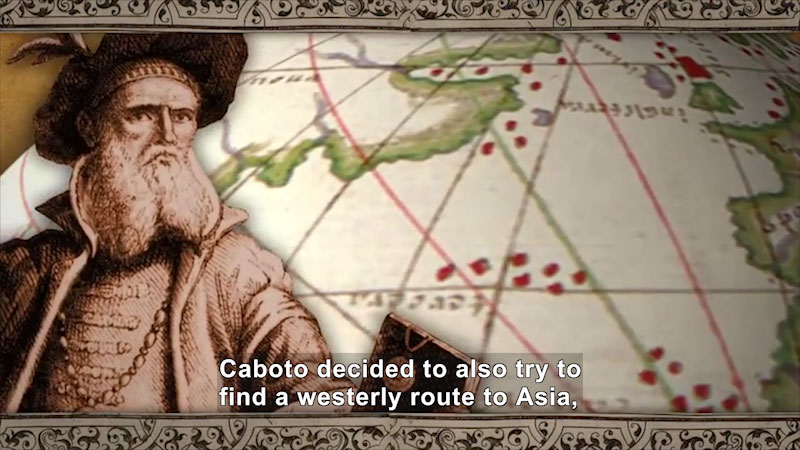World Explorers: Ibn Battuta
Ibn Battuta was a Moroccan scholar and explorer who widely traveled the medieval world. He is known as the greatest Muslim explorer in history. Over the course of thirty years, Battuta recorded his adventures from Africa to Southeast Asia. Part of the "World Explorers" series.
Media Details
Runtime: 4 minutes 21 seconds
- Topic: Biographies, Geography, History
- Subtopic: Biography, Explorers, World Geography
- Grade/Interest Level: 4 - 8
- Standards:
- Release Year: 2017
- Producer/Distributor: PBS Learning Media
- Series: World Explorers
- Report a Problem
Related Media
ASL

World Explorers
Episode 1
4 minutes 21 seconds
Grade Level: 4 - 8
World Explorers
Episode 1
4 minutes 21 seconds
Grade Level: 4 - 8
World Explorers: Ibn Battuta
ASL

World Explorers
Episode 2
4 minutes 49 seconds
Grade Level: 4 - 8
World Explorers
Episode 2
4 minutes 49 seconds
Grade Level: 4 - 8
World Explorers: Erik the Red & Leif Erikson
ASL

World Explorers
Episode 3
5 minutes 23 seconds
Grade Level: 4 - 8
World Explorers
Episode 3
5 minutes 23 seconds
Grade Level: 4 - 8
World Explorers: Marco Polo
ASL

World Explorers
Episode 4
4 minutes 34 seconds
Grade Level: 4 - 8
World Explorers
Episode 4
4 minutes 34 seconds
Grade Level: 4 - 8
World Explorers: Zheng He
ASL

World Explorers
Episode 5
4 minutes 23 seconds
Grade Level: 4 - 8
World Explorers
Episode 5
4 minutes 23 seconds
Grade Level: 4 - 8
World Explorers: John Cabot
ASL

World Explorers
Episode 6
4 minutes 31 seconds
Grade Level: 4 - 8
World Explorers
Episode 6
4 minutes 31 seconds
Grade Level: 4 - 8
World Explorers: Vasco da Gama
ASL

World Explorers
Episode 7
4 minutes 47 seconds
Grade Level: 4 - 8
World Explorers
Episode 7
4 minutes 47 seconds
Grade Level: 4 - 8
World Explorers: Christopher Columbus
ASL

World Explorers
Episode 8
4 minutes 24 seconds
Grade Level: 4 - 8
World Explorers
Episode 8
4 minutes 24 seconds
Grade Level: 4 - 8
World Explorers: Amerigo Vespucci
ASL

World Explorers
Episode 9
4 minutes 54 seconds
Grade Level: 4 - 8
World Explorers
Episode 9
4 minutes 54 seconds
Grade Level: 4 - 8
World Explorers: Ponce de León
ASL

World Explorers
Episode 10
5 minutes 37 seconds
Grade Level: 4 - 8
World Explorers
Episode 10
5 minutes 37 seconds
Grade Level: 4 - 8
World Explorers: Hernán Cortés
